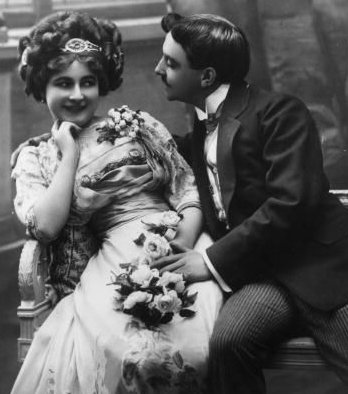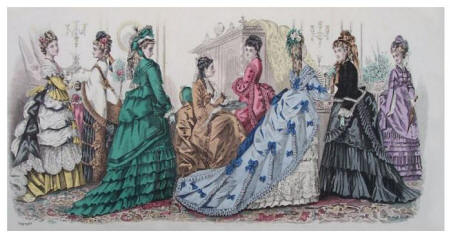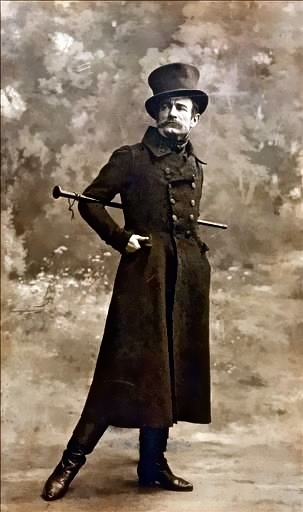(Saving the world from Strong Female Characters so you don’t have to, Part 3 of 9. See, we’re a third of the way through already!)
So, here’s what we’ve got so far: Mr. Wright believes that “strong female character” is code for “masculine female character” and that this is a wrong and offensive thing because women are different from men. So different. Here, let me spend some more time telling you all the ways I think women are different from men, and my justification for why I think that is, and here are some more things about women that make them different from men, and here, and here — my goodness, I do love talking about all the ways I think women are different from men. I could do it ALL DAY LONG.

Tell me more, really. Uh-huh. Sure. How interesting.
In fact, this essay is so wordy and repetitive that it doesn’t give the impression he wrote it to convince anybody of anything. I’m starting to suspect that he wrote it because talking about how women are different from men gives him a thrill, perhaps even erotic satisfaction.
Which, now that I think about it, makes a weird kind of sense. If observing gender is part of what triggers our own sexual feelings (i.e. that person looks like a woman to me! Sex drive engaged!) then not only does exaggerating gender performance provide more and stronger opportunities for sexual feelings to be triggered, but talking about gender performance (as in an essay like this) functions as a proxy for the experience.
It’s like sneaky, dishonest porn — safe for the Victorian drawing room, because the engagement of lust is smothered under six layers of verbosity and petticoats. But its primary purpose is still to inflame male lust — not to a true fire that might reach a climax and die down, but to a secretive low-level smolder that never ends.

This room might explode from all the petticoats that are in it.
Gamergate and other online controversies have already made it obvious that sad, immature dudes react in fear to the vague notion that a “bad mommy” figure might take away their comic book porn, or their video game porn. But I had never previously considered the idea that when some pompous windbag starts to wheeze on and on and on about what he thinks women are like, that he’s not only attempting to give us our marching orders — he’s actually getting off just on the experience of telling us what he wants us to be like. It’s yet another form of sexual objectification, this one particularly insidious because it tries so hard to pretend to be anything but sexual.
The problem, of course, isn’t porn — per se. The problem is that porn catering to a specific taste (male, heterosexual, traditionally patriarchal) has become normalized to the point that it is never even recognized as porn. We think it’s neutral. Background noise. Air. This essay does not take the relatively honest standpoint that it is informing us how to ignite the erotic imagination of one Mr. John C. Wright (should we… er… wish to do so). Instead, it makes the creepy and disingenuous claim to be lecturing us about how how characters ought to be gendered, how romance ought to go, how men and women ought to be seen to differ from one another.

Women, for example, don’t usually sport moustaches.
Women, it must be noted, complain more than men.
Oh, DO they? Funny, I’ve never noticed this. Is there anything like… you know… evidence, to back up this assertion?
The feminine way to correct the problem is to get someone else in the group to volunteer out of kindness. [..] The masculine way to correct the problem is to endure it, fix it yourself on your own time, or command an underling to correct it
I can’t… What kind of group is he even imagining here? Family? Friends? Neighbors? Fellow commuters? Work colleagues? Post-apocalyptic survivors? Spaceship crew? Scooby gang? Random people who happen to be at the store when the mist with the terrifying giant extradimensional spider creatures rolls in?
What kinds of problems, exactly, is he imagining that women get other people to solve?
Also, once again, notice how he is giving women responsibility but no power. What is a woman supposed to do if there isn’t a man around, or if all the men are useless scoundrels? Fix it herself, right? So if a woman can fix it herself when the men are gone, why is she supposed to pretend she can’t when the men are there?
A fluttering pretense of feminine helplessness is certainly the way to some men’s hearts, but I can’t respect either the woman who does it or the man who craves it.
I have an impulse to stab my rivals through eye and into the brain pan with my sword cane
This is a recurring theme with him.

John C. Wright, presumably.
So in looking at the formal causes of masculinity and femininity, I make no remark as yet recommending whether we ought to train our young men and women to adhere to these roles or to oppose them.
Got news for you dude. The reason you have all those very specific and detailed ideas about “masculinity” and “femininity” is because “we” — that is, your society — have already trained you to see them. You didn’t make them up your own self. You didn’t get them beamed into your head from God Almighty or space aliens. They’re not a natural and inevitable side effect of being human. They’re culture. That’s where they come from.
A central goal is child-rearing: this requires a fit physique and a willingness to submit to masculine sexual desire.
I’m fairly certain I’m not the only one who shuddered in revulsion when reading “submit to masculine sexual desire.” Yeah, sure, that’s exactly what sex is. Women submitting to men. We lie back and think of England, each and every one of us, each and every time.
The pretense that sex is for dudes, that women comply only grudgingly, that it’s a favor we do for men — it’s a dirty, dirty lie, and I believe it’s actively harmful, slut-shaming any woman who feels differently, and even helping erase the distinction between consensual sex and rape.
If women didn’t, in general, want sex, the species wouldn’t still be here. The end.

You can’t get a man with a gun, except when you can.
a book like Pride And Prejudice [..] concerned with the misjudgment and the correction of misjudgment about a suitor’s character is the central theme, is the quintessential feminine book. Women, if they are feminine women, will be fascinated by a book such as this [..] Girls who do not like love stories are well advised to learn to like them, because such stories deal with the essential and paramount realities on which much or most of that girl’s happiness in life will hinge.
YES YOUNG LADY IF YOU DON’T LIKE LOVE STORIES YOU’D BEST LEARN TO LIKE THEM IF YOU KNOW WHAT’S GOOD FOR YOU
This is not only creepy, but also confirmation that his ultimate purpose here is to tell people — women, anyway — what sort of fiction they ought to like. Gooooood luck with that. Wait, no, I mean: get stuffed.
Also, I hate to break it to him, but romance in fiction is not a good way to learn how to conduct real-life romance. In fact, love stories — where the romance has to drive the plot — are probably the worst genre to tell you anything useful about love in the real world.
I think he’s getting the relationship between women’s (admitted) greater interest in the details and mechanics of courtship, and their taste in fiction, backwards. Women like the romance genre because it reflects their experiences, dreams, and desires back to them in a way they find pleasing — not because they expect to learn anything from it. I mean, the biggest consumers of romance fiction aren’t younger, unmarried women, are they? It’s mature women. Married women. Women who have already been through a somewhat more prosaic version of the same experience. Women who are at the stage in their relationship of waking up next to the same dude every day and wondering things like “Who is this guy? How did we get here? Where did the magic go? Should I have held out for the rugged and mysterious sea captain after all?”

Tell me more, really. Uh-huh. Sure. How interesting.
The inequality is between the active versus the passive role. I submit that this is not inequality, [..] It is complementary.
Nope. Nope, nope, nope. No way, no how, not even a little bit. The active role is not merely complementary to the passive role. The active role is the one that has power. THEY ARE NOT EQUAL.
You can have an equal overall relationship — between two people — where each party takes the active role sometimes, the passive role at other times. Or you can have an equal relationship where both parties freely agree that one party will always take the active role. But the passive role is not, in and of itself, equal to the active role.
There’s a pretty obvious test. You say that the active role and the passive role are actually equal? Okay. You take the passive role.
No? Why not?
And if your response is, “I’m a dude, the passive role isn’t natural to me,” I think you’re proving my point, not yours.
Those who object that men should not lead in the dance, whatever they say, are not friends of women; they just want to stop the joy of the dance.
Oh, where to begin. Does “the dance” mean courtship? If so — nobody on the feminist side is telling you how to execute your preferred mating rituals, as long as they don’t violate the law, or the boundaries of normal social interaction. (That is, as long as you’re not being rude or otherwise creepy.)
Even in the free gender utopia that is surely to come, if you want to be all, “my lady” and tugging on your fedora, if there’s a woman alive who gets giddy when you do that, you two hook up, seriously. But if you can’t find that woman — whatever. That’s on you.
And, “they” are not “friends of women” — who are they? Are they me? I’m a woman, you know. I’m also a feminist SF fan who doesn’t agree with you AT ALL. Are you seriously trying to say that I not my own friend? What’s your basis for claiming that? I think I’m doing okay. Honestly, I can’t think of a single thing in my life that would have been improved by me not being a feminist. I probably would have dated more jerks, is all.
Am I trying to stop the joy of your dance? Of course not. Find a willing partner and dance however you want. Just respect my right to do the same.

I’m sure this isn’t quite as weird as it looks?
The stark fact is that a healthy woman admires and should admire strength in her man, including when such strength sweeps her up in his arms. She should be delighted even if she is offended when Tarzan throws her over his shoulder [..] A man should not admire physical strength in women, because this is not a characteristic that differentiates the sexes for him.
These things you call “facts” — I’m not sure you quite grasp the concept.
Once again, he’s telling us what we ought to like — not merely in fiction this time, but what we, as actual human beings, should want in a mate. A “healthy” woman “should admire strength in her man” and “should be delighted even if she is offended” when he literally physically overpowers her.
Dude, can I even begin to tell you how creepy that is?
And the opposite — a man “should not admire physical strength in women.” Well, there you have it, athletic ladies! If men like you, they are being incorrect!
.jpg)
You heard him. Put those men down and get back in the kitchen.
The sexes are opposite, and culture should exaggerate the complimentary opposition by artifice in order to increase our joy in them, including artifices of dress and speech: when women dress and speak and act like men, some joy is erased from both sexes.
BINGO. My “erotic satisfaction” theory is confirmed. He thinks it is the job of culture to exaggerate, in an artificial way, a gender binary focused on distorting the behavior of women so that it differs as much as possible from the behavior of men. Because he likes that.
When women “act like men” — that is, when they are “direct in speech, confident in action, [..] cunning in wit, unerring in deduction” — when they fail to manifest the “slow and loving and patient bravery of [..] dealing with childish menfolk:” — Mr. Wright gets sad.
And, like a lot of childish menfolk, Mr. Wright is under the very mistaken impression that the rest of the world is supposed to care.
